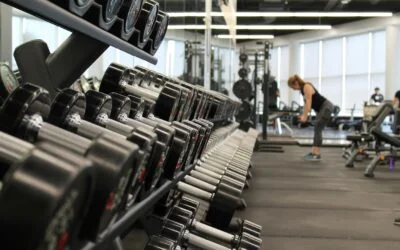As the weather warms and Atlantans take to our city’s expanding network of bike lanes and multi‐use trails, bicycle accidents have become an all‐too‐common threat. Whether you’re commuting to work, exploring the BeltLine, or enjoying a weekend ride through Piedmont Park, collisions with vehicles or even single‐bike crashes can lead to serious injuries. If you’re hurt on your bike, taking swift, informed action can protect your health and preserve your right to fair compensation. Below is a detailed, step‑by‑step guide tailored to bicyclists in Atlanta who find themselves injured and unsure what comes next.
1. Seek Medical Attention Immediately
No matter how minor your crash may seem—whether it’s a fender‑bender with a car or a tip‑over on uneven pavement—always prioritize your health first. Injuries like concussions, internal bleeding, or fractures aren’t always apparent right away. Follow these steps:
- Call 911 if You Suspect Serious Injury: If you’re unable to move, experience severe pain, or see any bleeding that will not stop, request an ambulance.
- Visit an Emergency Department or Urgent Care within 24 Hours: Even if you initially feel okay, subtle symptoms—dizziness, nausea, or stiffness—can indicate underlying trauma, such as soft‑tissue damage or head injuries. Medical records from your first visit establish a direct link between the accident and your injuries.
- Document Your Injuries and Symptoms: Keep a journal detailing pain levels, mobility issues (e.g., inability to bend a wrist or walk without assistance), and emotional distress (fear of riding again). This ongoing log helps quantify your pain and suffering when negotiating a claim.
Prompt, thorough medical care not only reduces the risk of long‑term complications but also strengthens your potential injury case by demonstrating timely treatment.
2. Report the Collision to Law Enforcement
Georgia law (O.C.G.A. § 40‑6‑273) requires any crash involving injury or property damage to be reported to the police. Taking these steps ensures you have an official record:
- Call 911 or the Non‑Emergency Line: Request an officer to the scene. Even if the driver doesn’t stop—creating a hit‑and‑run situation—reporting promptly is crucial.
- Obtain a Police Report: Ask the responding officer for their name, badge number, and the case number. You can later request a copy of the crash report from Atlanta Police Department’s Records Division. The report documents who was involved, weather and road conditions, any citations issued (e.g., failure to yield, distracted driving), and witness information.
Without a police report, insurance companies may try to dispute fault or delay processing your claim. Having it on file right away creates an official timeline and lends credibility to your version of events.
3. Preserve Evidence at the Scene
Strong evidence is the foundation of any successful bike accident claim. Take these actions as soon as you are able:
- Photograph Your Bike and Injuries: Capture damage to your bicycle—bent frame, broken spokes, or snapped handlebars—as well as your visible injuries (scrapes, bruises, swelling). Date‑stamped photos tell the story.
- Document Road Conditions: If the crash resulted from debris in a bike lane, a pothole, or lack of signage, take wide‑angle and close‑up shots of the hazard. Poorly maintained or poorly marked roads can shift liability to the city or county.
- Gather Driver Information (If a Vehicle Was Involved): Secure the driver’s name, phone number, driver’s license number, license plate, and insurance details. Even if they claim “insurance is pending,” note the car make and model, and photograph their license plate.
- Collect Witness Contact Details: Ask pedestrians, other cyclists, or drivers nearby for names and phone numbers. Brief written statements—“I saw the driver make a right turn directly into the bike lane” or “I watched the cyclist hit the pothole, then veer into traffic”—can powerfully corroborate fault.
Well‑preserved evidence prevents disputes about exactly how the crash occurred, especially when cyclists often carry less protection than vehicle occupants.
4. Notify Your Insurance and Explore Available Coverage
Although bicycles themselves are typically not insured, there are several policies and sources of coverage that may apply:
- Driver’s Auto Liability Policy: If a motorist’s negligence caused your injury—failure to yield, running a red light, or opening a door into your path—you file a claim against their liability insurance. Georgia requires minimum limits of $25,000 per person/$50,000 per accident for bodily injury (O.C.G.A. § 33‑7‑11), but drivers frequently purchase higher limits.
- Your Health Insurance or PIP/MedPay Endorsements: If you carry auto Personal Injury Protection (PIP) or MedPay, these can cover medical bills regardless of fault, up to your policy limits. Your health insurer may pay initial treatment costs but will seek subrogation (reimbursement) from any settlement later.
- Uninsured/Underinsured Motorist (UM/UIM) Coverage: If the at‑fault driver lacks adequate insurance or flees the scene, your UM/UIM coverage under your auto policy can step in—up to your UM limits. Georgia law allows you to “stack” UM limits across multiple vehicles on a single policy, potentially increasing your recovery.
Notify any applicable insurers immediately. Prompt notice is often a requirement to avoid coverage denials. A knowledgeable attorney can parse these policies, ensuring you tap every available source.
5. Understand Georgia’s Comparative Negligence Rules
Georgia follows a modified comparative negligence system (O.C.G.A. § 51‑12‑33), meaning that if you’re found partially at fault, your recovery is reduced by your percentage of fault—but you can still recover if you’re less than 50% to blame. Common examples:
- Cyclist Fails to Obey Traffic Laws: If you ran a red light or ignored a stop sign, an insurance adjuster might argue you share fault.
- Distracted Driving by Motorist: If a driver was texting and struck you in a marked bike lane, their negligence likely exceeds any minor oversight on your part.
An experienced attorney investigates each contributory factor—road design, cyclist conduct, driver behavior—to minimize your percentage of fault and maximize your recovery.
6. Calculate All Your Damages
A fully developed bike accident claim includes more than just medical bills:
- Past & Future Medical Expenses: ER visits, hospital stays, surgeries (e.g., orthopedic repairs), physical therapy, chiropractic care, and durable medical equipment (braces, crutches).
- Lost Wages & Earning Capacity: If you miss work due to injuries, request documentation from your employer—pay stubs, time sheets, or a letter confirming lost hours. If injuries cause permanent impairment (e.g., limited range of motion in your arm), consult a vocational expert to determine diminished earning capacity.
- Pain & Suffering: Compensation for physical pain, emotional distress, anxiety about returning to cycling, and loss of enjoyment in previously enjoyed activities (e.g., weekend rides with friends).
- Property Damage: Repair or replacement costs for your bicycle and helmet. If you had to rent a bike while yours was in the shop, keep rental receipts.
- Other Out‑of‑Pocket Expenses: Transportation to medical appointments (Uber, transit fares), childcare if you can’t perform household duties, home‑care assistance, and any necessary home modifications (e.g., installing a ramp if you’re temporarily in a wheelchair).
Your attorney compiles medical records, expert opinions, and financial documentation to prepare a comprehensive demand that reflects your true losses.
7. Consult an Experienced Atlanta Bicycle Accident Attorney
Navigating a bike accident claim alone can leave you vulnerable to lowball settlements. At Gunn Law Group, we provide:
- Thorough Investigation: We reconstruct accidents using traffic cam footage, accident reconstruction experts, and witness interviews, making clear how negligence caused your injury.
- Aggressive Insurance Negotiation: Insurance adjusters often offer quick, minimal payouts. We craft a compelling demand backed by solid evidence, refusing to settle for less than you deserve.
- Litigation Readiness: If insurers balk at reasonable offers, we file suit in the correct Atlanta jurisdiction—Fulton, DeKalb, or Cobb County—well before Georgia’s two‑year statute of limitations (O.C.G.A. § 9‑3‑33) expires.
- Personalized Support: From arranging prompt medical referrals to answering your calls 24/7, we guide you through each step, ensuring you focus on recovery rather than paperwork.
Don’t risk your health and financial future by accepting an insurer’s lowball offer. Let a dedicated bicycle accident attorney fight to secure every dollar you deserve.
Call the Big Gunn Today
If you’ve been injured while riding your bike in Atlanta, don’t wait. Call the Big Gunn at 888‑BIG‑GUNN for a free consultation. We’ll evaluate your case, explain Georgia’s comparative negligence rules, and fight to maximize your recovery—including medical bills, lost wages, pain and suffering, and bike replacement costs. With Gunn Law Group by your side, you gain an unwavering advocate committed to getting you back on your feet—and back on your bike—as quickly as possible.




